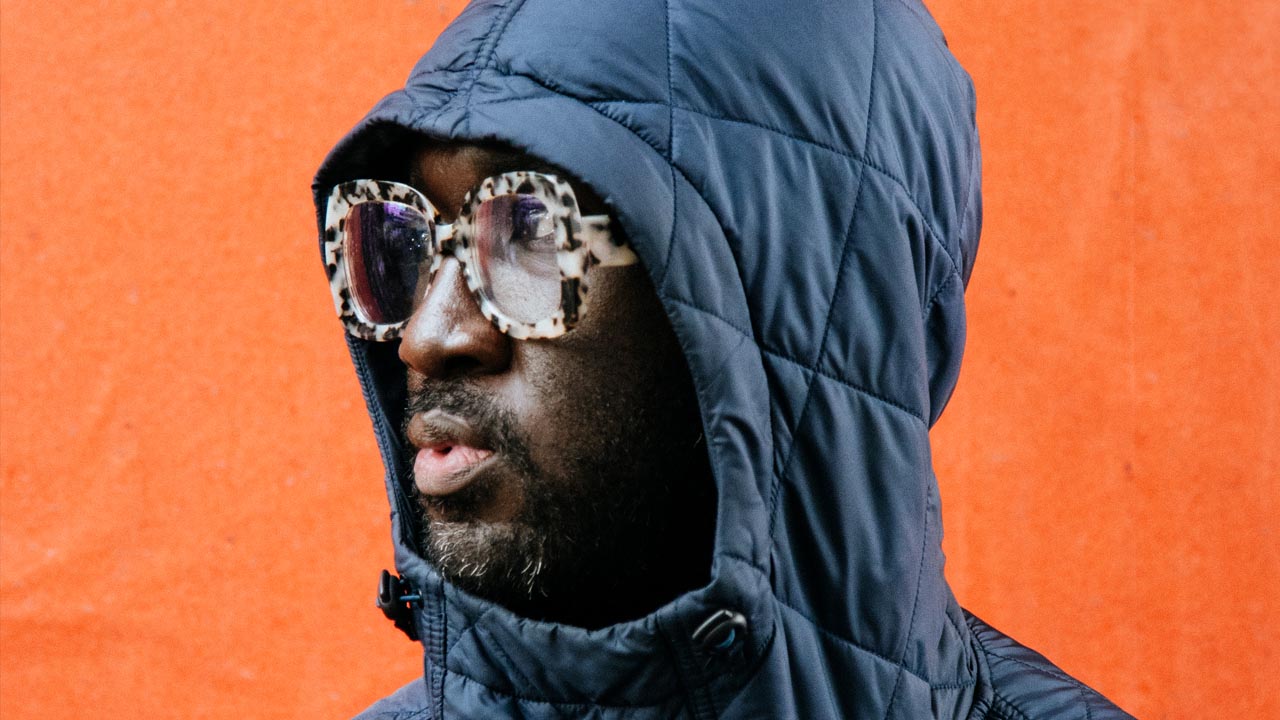6 rules to make a career in music, according to producer Kwes
Words of wisdom from the Rye Lane composer and superstar producer...


Get exclusive shortlists, celebrity interviews and the best deals on the products you care about, straight to your inbox.
You are now subscribed
Your newsletter sign-up was successful
Want to work in music? Don't just take inspiration from Taylor Swift and Drake.
We talked to London’s own Kwes about the tips and advice he’d give to people looking for a career in music.
Some of you may know Kwes for tracks like 2012 bop Bashful. You may have heard his name mentioned alongside Sampha, Damon Albarn or Loyle Carner. He’s produced for them all, and many more, over the last decade and change.
Kwes’s work with on Carner’s album hugo earned him a Producer of the Year nomination at the 2024 Music Producers Guild awards, where we caught up with him recently.
However, something else put Kwes firmly back on our radar recently. He composed the soundtrack for 2023 film Rye Lane, one of the best rom-coms of the last decade.
Missed it? Few films nail the feel of London like Rye Lane, and Kwes’s music has a lot to do with that, alongside a well-written central relationship about ten times as real-feeling as that of the average US rom-com.
“I'll let you in on something,” Kwes told us. “So, when they first sent me the film – the rough cuts – they sent me a temporary score, and quite a bit of the temp score was my old music.
Get exclusive shortlists, celebrity interviews and the best deals on the products you care about, straight to your inbox.
“It meant I was able to tap into that quite easily. It was music I’d made 10-plus years ago and I think Raine thought the music I made was very ‘London’. I guess, me being from South London, makes the music very ‘London’.”
Raine Allen Miller directed Rye Lane, which won Kwes a British Independent Film Award (BiFA) for the soundtrack, his first film soundtrack work. The film also earned two BAFTA nominations, and is available to stream at Hulu (US) and Disney Plus (UK). Give it a watch.
“Raine is super visual, so the film was stunning; I’ve never seen London like that. I know the fisheye lens thing is a bit of a marmite thing, but the way it’s shot, it's crazy,” says Kwes.
"She and I developed a great little dialogue on sounds. She'd describe a sound as a thing, as a particular object, and I’d be like 'I think I know what you mean’ and turn it into sound.”
His secret audio weapon when recording? The human voice. “There's something that's very emotive about it,’ he says. “So I'd have loads of samples I'd call on; ones I’d captured – my voice, my daughter's voice, anyone, really."
“The human voice was something I used a lot across the score, stretching it out into new sounds - but sometimes, you hear it as it is. It’s a soundtrack that’s all about ambience.”
Prefer the sound of pianos and guitars or swooping orchestras to sampled vocal sounds? It's all good because Kwes's six tips for kicking off a career crafting music are universal...
1. Don’t be precious, it’s a matter of taste
“First and foremost it has to be: don't be precious over what you make. You're providing a service - but also don't beat yourself up either. When you're working with a client or you're working with a production company, they've hired you because they love what you do. So focus on that.
“I think maybe at one point, ages ago, I was precious, but not now. You've just gotta keep it moving… Don't be too attached to what you make, because they might like something you're not necessarily as into. It works both ways. You might really love something and think 'ah, this is so perfect!' – only for them to just completely dash it. So, don't feel down about it if that does happen.”
2. Do your research
“Think about what you like watching and what you're into film genre-wise. Study different composers, check out loads of soundtracks that you like - anything that kinda catches your eye. Do a deep-dive into all of those composers and then check the directors they've worked with as well… just kind of go down rabbit holes and see where you end up.
“I love Mica Levi (Under The Skin, Jackie, Mangrove). What they do is just amazing. And I love what Michael Abels did on Nope – his diegetic music. He's an amazing arranger as well, working with orchestra's and stuff.
“Oh, and the guy who did the first Alien: Goldsmith, Jerry Goldsmith. A lot of the cues in that film were demos or library music - and I think some were even meant to be used in another film. They just rolled with it. It's insane. That's probably one of, if not my favourite score of all time.”
3. You don’t need to spend big bucks
“Don’t go down that rabbit hole and spend money on gear - I’ve been there, and it’s not a pretty place. The truth is, you don't need to spend a lot on equipment. Go with what you can afford – you can even make records on Garage Band these days. When you see big names and they have all this gear, a lot of it is just a tax write-off. There are so many free plugins you can get hold of, so many techie-download rabbit holes.
“Whatever you do, just don’t get ‘gear-acquisition syndrome’. If you really feel like you want to trial some equipment, like a sample, or an instrument that could inspire something, go for it – as long as you take it back before the warranty runs out."
4. The internet is your friend
“If you're starting out making music, there is so much out there, there's a wealth of information – too much information. I guess the challenge is deciding what works for you, because there's just so much to take in. You can get started easily.
“When I started out, there was no YouTube. I don't even think I had Google to be honest, it was Ask Jeeves. Now, anyone you want to reach out to, you can actually get a hold of. Social media means you have a better chance of getting in touch with who you want to get in touch with – there aren't as many gatekeepers around any more. The challenge is cutting through the noise.”
5. Being yourself is your USP
“It’s a big one: be yourself. People come to you because they want something different, so just kind of tap into what inspires you and roll with it – just like Rye Lane. Every so often, take a step back and remind yourself: ‘Why am I doing this? What do I really love about what I do?’ because it's so easy to get bogged down trying to make music and you lose the inspiration.
“For me, inspiration is my family, friends, but particularly my kids - they’re my exec producers. Just seeing how they react to music gets me going. I might be listening to something and then my littlest one, who’s one, will start rocking in the chair. Or, she'll start bouncing on the ground and stuff.
“It kind of got me thinking: there was a period of time in my life where I wanted to veer away from grooves, just the repetition. But there's just so much in repetition, that's what makes us love music.”
6. Don’t forget to sleep
“It sounds obvious, but sleep is important. Good sleep. Whenever something isn't working, just step away from it. Just do something else. I’ve found most of my ideas come to me when I'm not doing work. When I step away from the computer or I’m doing something else they just flow. It’s all about perspective.”
Main Image Credit: Warp Publishing
As a former Shortlist Staff Writer, Danielle spends most of her time compiling lists of the best ways to avoid using the Central Line at rush hour.
